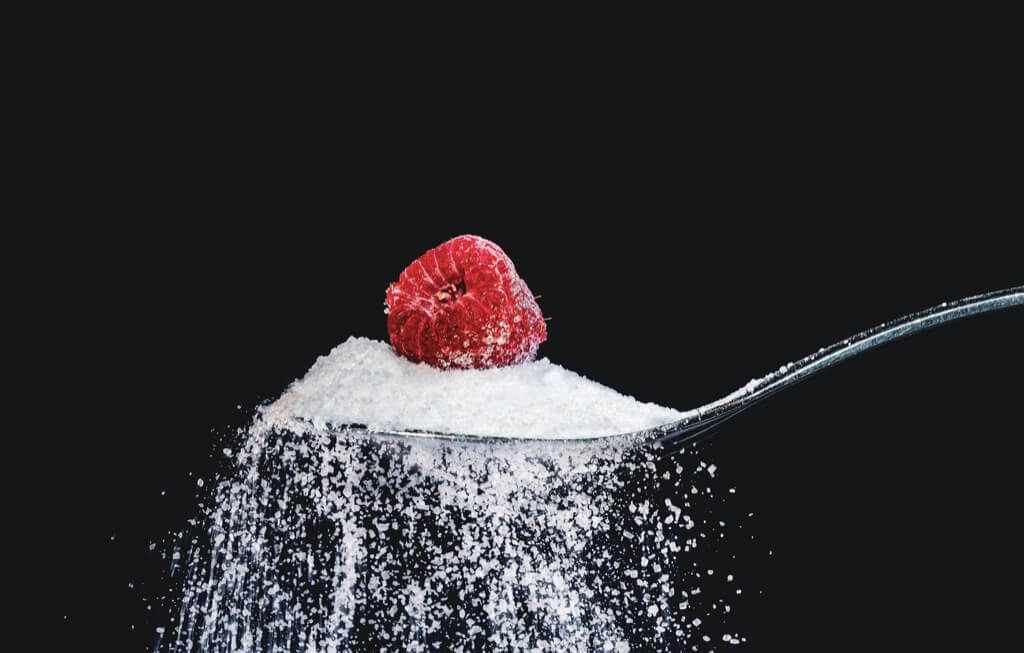Aspartame, a popular artificial sweetener, has its fair share of critics and defenders. With the internet flooded with information about its supposed health risks, from cancer to brain disorders, it’s essential to sift through the noise and understand the truth.
Here’s a historical perspective: G.D. Searle and Co. discovered Aspartame in 1965, and by 1974, the FDA gave it the green light as a food additive. Its primary advantage? While both sugar and Aspartame contain 4 calories per gram, the latter is about 180 times sweeter than sugar, meaning you need significantly less of it to achieve the same sweetness. That’s why it’s a favored choice for those watching their calories.
But What is Aspartame Made of?
Three primary components:
- Phenylalanine
- Aspartic acid
- Methanol
And it’s these ingredients that often come under scrutiny.
For starters, aspartic acid is a naturally occurring amino acid found in various foods like asparagus, avocados, and molasses. Though excessive consumption can be linked to conditions such as epilepsy or strokes, the amounts in Aspartame are nowhere near the levels that could be harmful.
Methanol, on the other hand, isn’t exactly body-friendly. In large doses, its breakdown products—formaldehyde and formic acid—can be harmful. Methanol poisoning, for instance, can lead to blindness. But here’s the catch: foods like tomatoes, citrus fruits, and even alcoholic beverages like beer and wine contain similar or even higher methanol levels than Aspartame. So, if you’re not going blind from a tomato salad or a glass of chardonnay, Aspartame in moderate amounts isn’t likely to harm you either.
The last ingredient, phenylalanine, is a concern for a tiny fraction of the population suffering from Phenylketonuria, a rare genetic disorder. Without the right treatment, phenylalanine can accumulate and cause severe health issues. However, many other common foods contain higher amounts of phenylalanine than Aspartame. Awareness of this condition is such that the FDA mandates Aspartame-containing products be appropriately labeled.
Given its controversial history, Aspartame’s safety has been a subject of extensive research and scrutiny. A comprehensive review by the EFSA in 2013, which considered vast amounts of data, including inputs from the public, concluded that Aspartame was safe for consumption at recommended levels. The American Cancer Society echoes these sentiments, noting that the amounts of Aspartame leading to health concerns in lab animal studies are far beyond what a human would typically consume.
But, like any debate, there are two sides. Some experts, like Erik Millstone of Sussex University, feel that not all research on Aspartame’s harmful effects has been given due weight.

Nature possesses a transformative quality. Evidence continues to mount that those recovering from substance abuse…

In the intriguing realm of neurological mysteries, one perplexing enigma continues to baffle both medical…

Recent data paints a concerning picture: South Africa, like many developed countries, is facing a…
The Benefits of Aspartame
Aspartame, since its introduction in the 1960s, has been a popular artificial sweetener due to several advantages it offers:
- Caloric Value & Sweetness: While Aspartame has the same caloric value as sugar (4 calories per gram), it’s approximately 180 times sweeter. This means much less Aspartame is required to achieve the desired sweetness, making it a preferred option for those counting calories.
- Versatility: Aspartame’s sweetness makes it an ideal substitute for sugar in a variety of foods and beverages, giving consumers a wider range of low-calorie and sugar-free options.
- Natural Components: Aspartame is made from two amino acids: phenylalanine and aspartic acid. Both are naturally occurring in various foods and are required by our bodies for specific functions.
The Concerns Surrounding Aspartame
Despite its benefits, Aspartame has been the subject of debate and scrutiny over the years, with several health concerns raised:
- Methanol Content: Aspartame breaks down into methanol, which further breaks down into formaldehyde and formic acid. In large quantities, these compounds can be toxic. However, it’s worth noting that many other foods, like tomatoes and citrus fruits, contain methanol in similar or even higher amounts.
- Phenylketonuria (PKU): One of the components of Aspartame, phenylalanine, can be harmful to individuals with a rare genetic disorder called PKU. People with PKU cannot metabolize phenylalanine effectively, leading to its accumulation in the body, which can result in severe health issues. It’s for this reason that the FDA mandates products containing Aspartame to be labeled for those with PKU.
- Health Rumors: Over the years, various sources have linked Aspartame to a host of health issues, from migraines to cancer. However, it’s essential to differentiate between scientifically backed information and unsubstantiated claims. Most regulatory agencies, after numerous studies, have deemed Aspartame safe for consumption at recommended levels.
Balanced Consumption is Key
Like many substances, the effects of Aspartame on health largely depend on the quantity consumed. Within recommended daily intake levels, Aspartame is considered safe for the general population. However, as with any additive or ingredient, it’s essential to consume it in moderation and be aware of one’s individual health needs and conditions.
So, where does this leave us? The consensus among health experts is clear: Aspartame, when consumed within recommended limits, is safe. But as with anything, moderation is key. Overindulging in diet sodas might not give you Aspartame-induced cancer, but it could introduce a host of other health issues.




